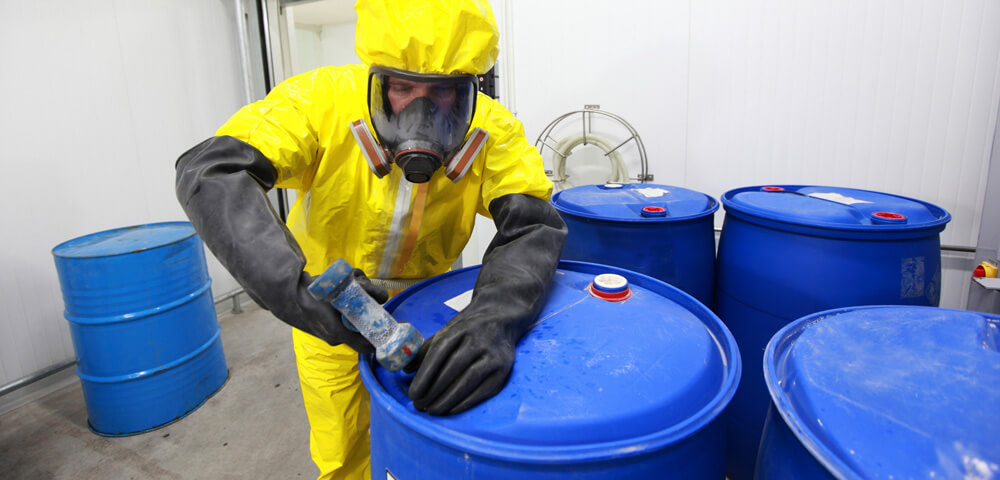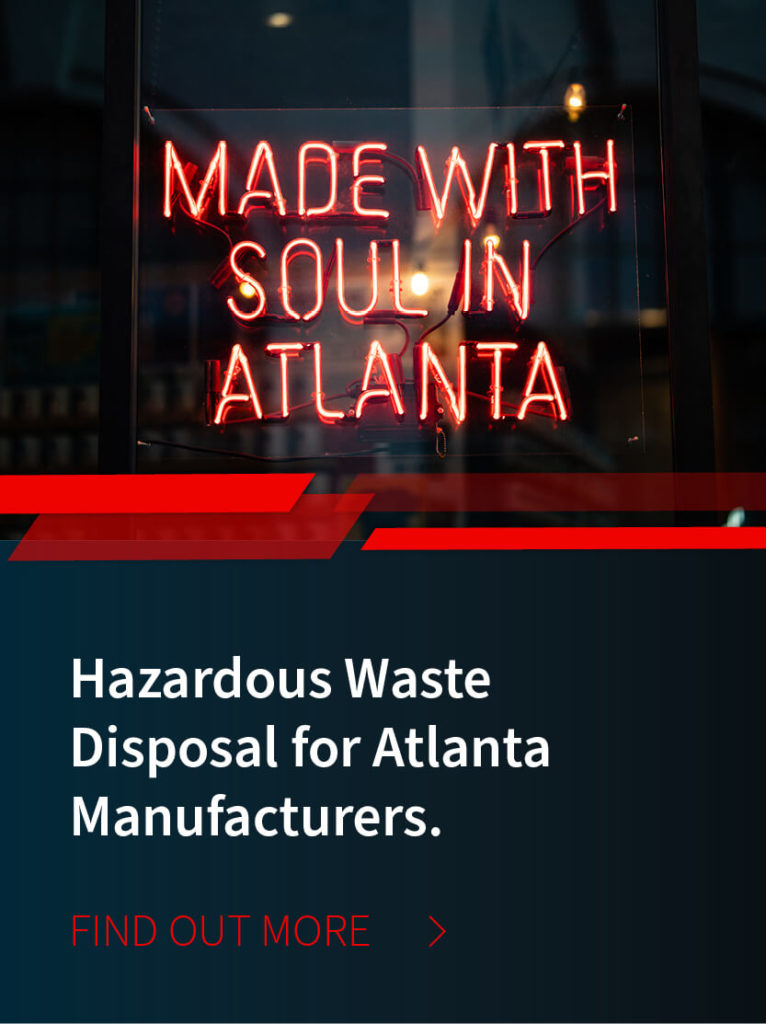
/ IN THIS BLOG
01 / Where to Find the Rules
We know that it can be time-consuming and often frustrating to try to find all the rules applicable to hazardous waste management in Georgia. There are rules for medical and hazardous waste generators. There are also rules for how such waste is to be segregated, stored, labeled, and transported.
Contacting a reputable hazardous-waste company that adheres to the laws of the Resource Conservation and Recovery Act (RCRA), the overall guidance of the Environmental Protection Agency (EPA), and the laws of the state of Georgia are important. Rules and regulations of the state of Georgia are consistently updated on the government website. Be aware that the rules of the federal government and the state of Georgia must be followed when it comes to hazardous waste management.
For specific guidance on healthcare or hazardous waste management, refer to department 391 – rules of Georgia Department of natural resources in chapter 391-3-4 regarding solid waste management and 391-3-11 for hazardous waste management.
02 / Finding a Reputable Waste Management Company
We know that not only finding the rules, but reading through them all and determining applicability to your facility and type of waste can be time-consuming and confusing. However, compliance is vital to reduce the risk of fines or penalties. For help in finding and understanding the rules, turn to a reputable waste management company for help.
For example, RCRA hazardous waste is a highly regulated substance that needs to be properly identified, packaged, transported, and disposed of. As the generator of that waste, you are legally and financially responsible for that waste until it’s been properly treated and disposed of.
Don’t guess or breeze over the regulations. The legal and financial repercussions of doing so will fall on you. Instead, seek guidance from an experienced, reputable, and knowledgeable waste management company that deals with regulated and hazardous waste.
03 / What to Tell a Hazardous a Waste Disposal Company
In order to do their jobs correctly, be prepared to answer questions about your company. For example:
How your waste is produced (generated)
How the waste is generated (medical, industrial, chemical, and so forth)
The more information the hazardous waste management company has to work with, the better prepared they are to properly handle your needs. Be especially diligent about explaining how much waste you produce because this determines your EPA generator status. Whether you’re a small or large quantity generator affects how you need to handle your waste—including how often you are legally required to ship.
04 / What can a Hazardous Waste Management Company do for you?
A hazardous or medical waste management company can guide you regarding federal and state regulations for up-to-date and compliant waste disposal processes. For example, a reputable and experienced waste management company can instruct and guide you through processes such as:
Properly packaging your waste for shipment
Identification of what is RCRA hazardous waste and what is non-hazardous waste
What you need to do to segregate into different waste streams
How to properly and safely store hazardous waste until shipping
How to determine what size and type of containers to use for shipment (including information on UN-rated containers)
Guidance on state and federal codes and labels that identify waste with its corresponding hazardous waste code
05 / Hazardous Waste Assessment
Another benefit of working with an experienced waste management company like MCF Environmental Services is a thorough site visit. This will allow the waste management company to see firsthand what your hospital, healthcare facility, manufacturing plant or industrial company is doing and what types of waste you’re producing.
That way, the waste management and disposal company can advise you in person about how best to handle your waste, which allows you to ask any questions you have and discuss options with a real person in real time. The company can identify other ways to help with your waste needs, such as how best to deal with all universal waste (batteries, light bulbs, etc.).
If you’re within a reasonable distance from your potential waste management company, most will offer this hazardous waste assessment free of charge.
For this reason, and more, consider working with a full-service company. A full-service company is licensed, permitted, insured, and prepared to handle every aspect of legally dealing with your generated waste. In this way, you know and trust all aspects of your waste disposal needs. An experienced company can also help you handle other waste management issues, such as:
Providing and filling out all necessary paperwork to prove you’ve fulfilled your obligation for legally handling the waste.
Identifying what waste you actually have—either by pulling samples and sending them to a lab or by examining your SDS sheets.
Completing a waste profile for every generated waste stream to ensure proper handling and acceptance at the treatment facility.
For more information about hazardous waste disposal or management, feel free to contact a representative of MCF Environmental Services, an Atlanta-based waste management company with over 30 years in the business. For questions or a service, reach out to one of our experts here!
Robert Losurdo
President, COO








